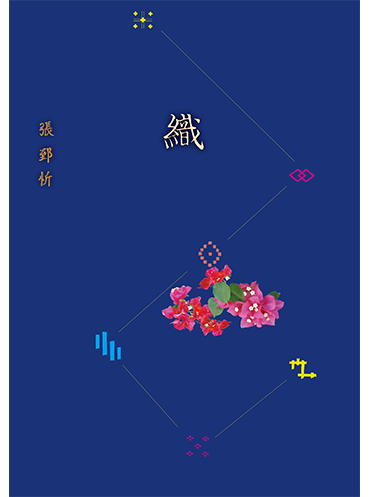*Autofiction with a novelesque structure
*Minority fiction from Taiwan
Chang Chih-Hsin’s debut novel Weave crosses boundaries of time, ethnicity, and individual consciousness as it tells the story of one young woman’s exploration through her dead grandfather’s multinational, multicultural past.
The famed literary critic Walter Benjamin once noted that a person’s real life “first assumes transmissible form at the moment of his death,” that is, a person only transforms into a story when he or she dies. Hui-Ling, the unemployed young woman at the center of this novel learns this the moment she loses her grandfather. Feelings of emptiness bring the details and questions of his life into sharp relief, and when a childhood playmate mails her a single slide made from one of her grandfather’s photographs, Hui-Ling can’t help but search for more.
Why did her grandfather travel to Vietnam in the 1970s, and stay there for many long years? Just as importantly, what brought him back, when he was on the verge of opening his own factory? Why did he raise her like a son, and not like a granddaughter? Hui-Ling’s search takes her into the dark recesses of her own family history, as well as into the complicated history of the many different peoples the world knows as Taiwanese.
Chang Chih-Hsin’s debut novel is a marvelous work of hybrid autofiction that dives deep into imagination and history through a beautiful, tangible part of indigenous Taiwanese material culture. It also shows the personal side of large-scale narratives of industrialization, development, and the human tolls of what we like to call progress.
